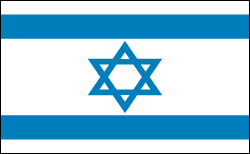2009 Year in Review - Palestine

Major World News Stories of 2009
Presidential Election Marred by Fraud in Afghanistan | President of Honduras Overthrown in Coup | Opposition Protests Presidential Election in Iran | U.S. Diminishes Its Role in Iraq | Taliban Gains Strength in Pakistan Israel and Palestinian StateProspects for Peace Between Israel and Palestinian Continue to FadePresident Barack Obama began his term optimistic that he could restart stalled negotiations between Israelis and Palestinians while insisting upon the establishment of a sovereign Palestinian state and a freeze on the continued construction of Jewish settlements on the Palestinian West Bank. By the end of 2009, however, any hope for the resumption of talks was clearly dashed. Parliamentary elections in February 2009 produced inconclusive results. The centrist Kadima party, led by Foreign Minister Tzipi Livni, won 28 seats in the 120-seat Knesset, but was unable to form a coalition. Benjamin Netanyahu's right-wing Likud, which placed second with 27 seats, cobbled together a government with the far-right party, Yisrael Beitenu, a scattering of religious parties, and Labor. Netanyahu, who became prime minister in April, pushed back against President Obama's demand that he freeze construction of new settlements on the West Bank, and Obama seemed to have caved to Netanyahu. In fact, Secretary of State Hillary Clinton sparked controversy in October when she praised Netanyahu for pursuing a restrained pace in settlement construction rather than an outright freeze. (While Netanyahu said there would be no construction of new settlements nor would Palestinian land be used for expansion of existing settlements, he acknowledged that some 3,000 houses already in the planning stages would be built.) Clinton later backpedaled amid fierce criticism from the Palestinians. Election Uncertainty Further Muddies View of FutureOn the Palestinian side, Mahmoud Abbas, the president of the Palestinian Authority and leader of Fatah, announced that he would not seek reelection in January 2010, citing the protracted impasse between Israelis and Palestinians and the United States' failure to aggressively take steps toward negotiating a settlement. Abbas's poll numbers were on the decline for much of 2009, with militants angered by his ongoing discussions with Israeli defense minister and former prime minister Ehud Barak and his reluctance to use force against the Israeli occupation of the West Bank. His popularity hit a new low in October, when he wavered in his response to the UN-backed Goldstone report, which accused both the Israeli military and Palestinian fighters of war crimes, alleging that both had targeted civilians during their war in Gaza in late 2008 and early 2009. The report was highly critical of Israel, saying its incursion into Gaza was a "deliberately disproportionate attack designed to punish, humiliate, and terrorize a civilian population." Abbas initially seemed to relent to a U.S. request that he not pursue further action via the UN in response to the report. Under intense pressure, however, with Hamas accusing him of betrayal, Abbas said he would push to bring the matter before the Security Council. The U.S. and Israel had warned Abbas that doing so would further derail the peace process. For more information on the state of affairs in the Middle East: |
- More from 2009 News of the World









